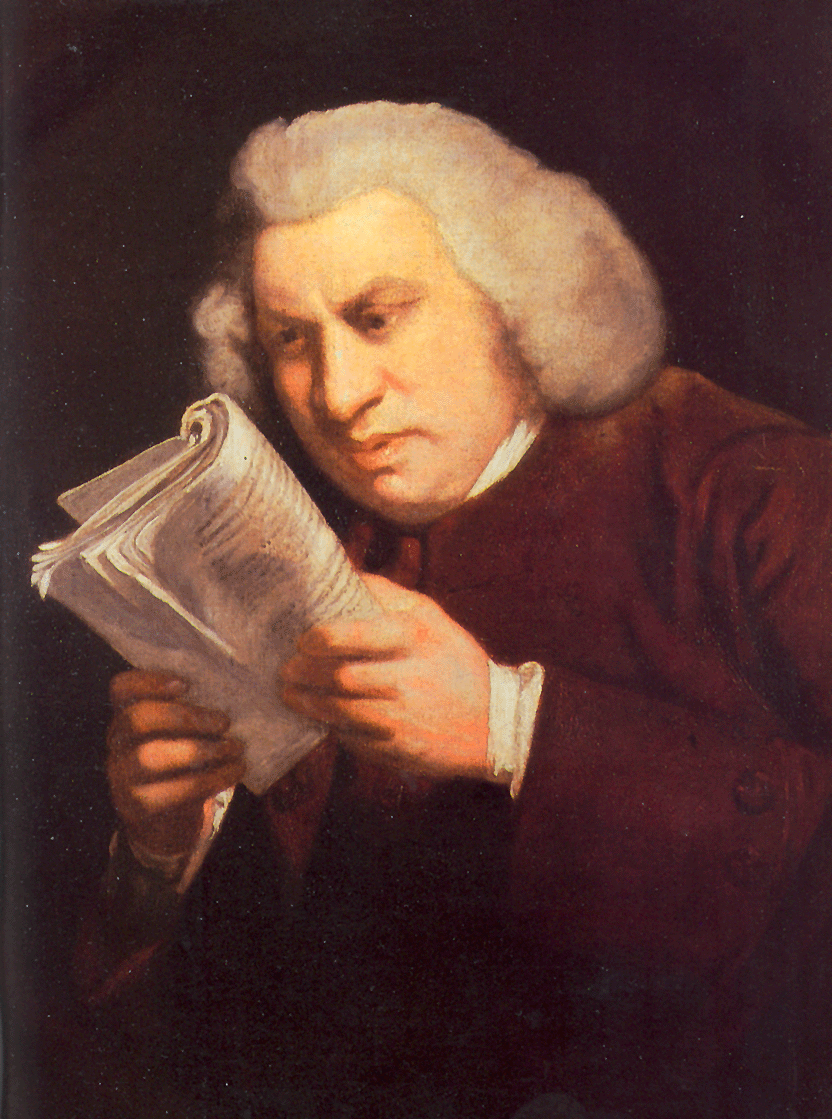"Anyone familiar with Samuel Johnson's famous gibe--'How is it that we hear the loudest yelps for liberty from the drivers of negroes?'--will appreciate that many Englishmen and contemporary Americans (Northern and Southern) thought that there was tension between American revolutionary principles and the institution of slavery." (42) --both quotes from George William Van Cleve's A SLAVEHOLDERS' UNION
 |
| Samuel Johnson From: Wikipedia |
Van Cleve argues that, despite the ideological advances made against the institution of slavery during the Revolutionary War, slavery was ultimately more strongly entrenched following that war than it was before the war. This was due to the political unity of the slave states around a single issue and the substantial (50%) portion of the new nation's overall wealth that was located in the South. The hypocrisy of Americans around slavery and individual liberty was the main reason that Charles Dickens so greatly disliked the United States. By the time he got to the U.S. in 1843, the nation billing itself as a beacon to the world of equality and liberty had been holding slaves for 60 years.
No comments:
Post a Comment